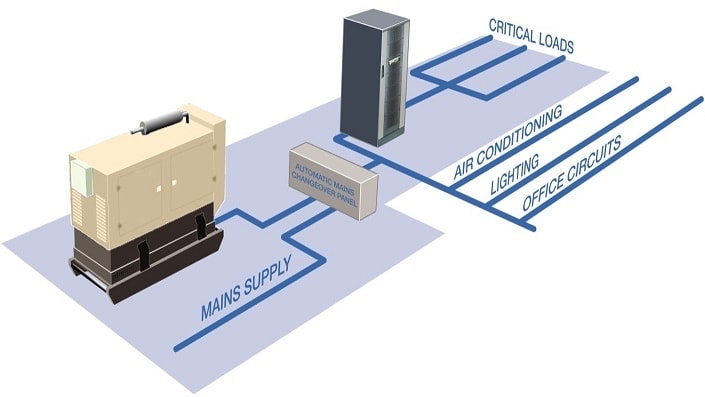Slower economic growth, rising energy costs and pressure to shrink carbon footprints mean that the ‘FAT’ of UPS systems will need to be kept in check, says KOHLER Uninterruptible Power (KUP).
“Businesses could save thousands of pounds on uninterruptible power supply expenditure, simply by taking a free UPS system ‘health check’” says KOHLER Uninterruptible Power, leading suppliers of UPS systems in Singapore.
“Our uninterruptible power supply health check includes assessment of a UPS system’s ‘FAT’ factors – Flexibility, Availability and Total cost of ownership – to help businesses identify ways of optimising their UPS solution to save running costs and reduce CO2 emissions,” said Peter Bentley, sales director at KOHLER Uninterruptible Power.
1) Beginning with the ‘F’ factor, ‘Flexibility’, a UPS power supply health check will look at the configuration of a UPS installation, to assess the UPS system’s ability to be efficiently matched to the changing size of its critical load. Does the UPS system have the ability to increase or decrease its level of redundancy? The more flexible uninterruptible power supplies prove to be the more efficiently they will run. This saves unnecessary electricity running costs which will be incurred if the UPS power supply is continually running significantly under capacity. Flexible UPS design with a truly modular architecture also enables organizations to upgrade or downgrade quickly, simply and cost-effectively.
“Many older uninterruptible power supplies employ out-of-date technology and are often sized incorrectly for today’s needs,” commented Bentley. “Inefficiencies mean that companies could be burning excess electricity and creating needless heat emissions, compromising efforts to reduce their carbon footprint.”
2) The ‘A’ factor, ‘Availability’, assesses a UPS system’s ability to continuously and reliably support its critical load. This is done by checking the topology of the UPS installation. If the UPS solution is configured to be a parallel redundant solution, aspects such as its mean-time-between-failures (MTBF) and its mean-time-to-repair (MTTR) will be considered. The uninterruptible power supply will also be assessed based on whether it uses a centralised-parallel-architecture (CPA) or de-centralised-parallel-architecture (DPA).
3) The ‘T’ factor, ‘Total cost of UPS ownership’, helps organizations to evaluate whether the cost of investing in high flexibility, high availability UPS solution would be offset by the reduction in running costs that it would provide. ‘True’ online transformerless modular hot-swappable UPS systems can offer relatively low lifetime operating costs. A holistic approach to considering the total cost of UPS ownership also considers ease of use, reduced UPS maintenance time and increased availability of the organization’s critical applications.
The free KUP UPS installation health check includes a complete inspection of your uninterruptible power supplies. This is followed by a written report with UPS recommendations for achieving savings without compromising reliability or performance. As well as identifying opportunities to optimise facilities, the UPS system health check can identify preventive UPS maintenance requirements and evaluate options for UPS system development as business power needs change.
In some cases, the most substantial savings in annual running costs, emissions and floor space can be achieved by completely replacing ageing uninterruptible power supplies. For example, over £145,000 could be saved over five years by replacing a 10-year-old 400kVA parallel redundant UPS system, running at 45 per cent of its rated capacity, with new Decentralized Parallel Architecture (DPA) 200kVA parallel redundant UPS systems. This would also reduce CO2 emissions by over 700 tonnes and cut floor space by 70 per cent.
For more information regarding any of our energy-efficient uninterruptible power supply products or UPS services, you can get in touch with KOHLER Uninterruptible Power via our contact page or call us on +65 6302 0702.



